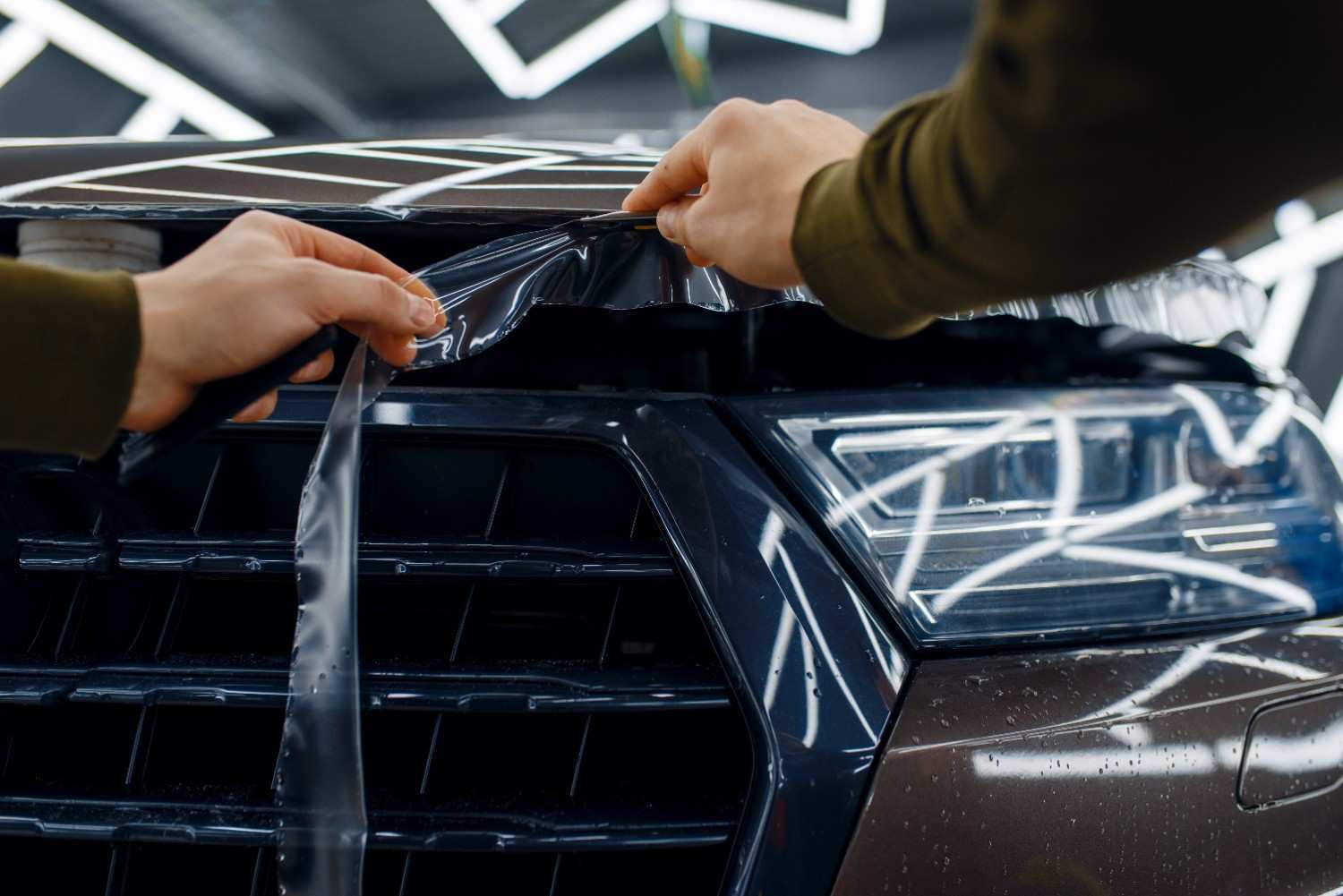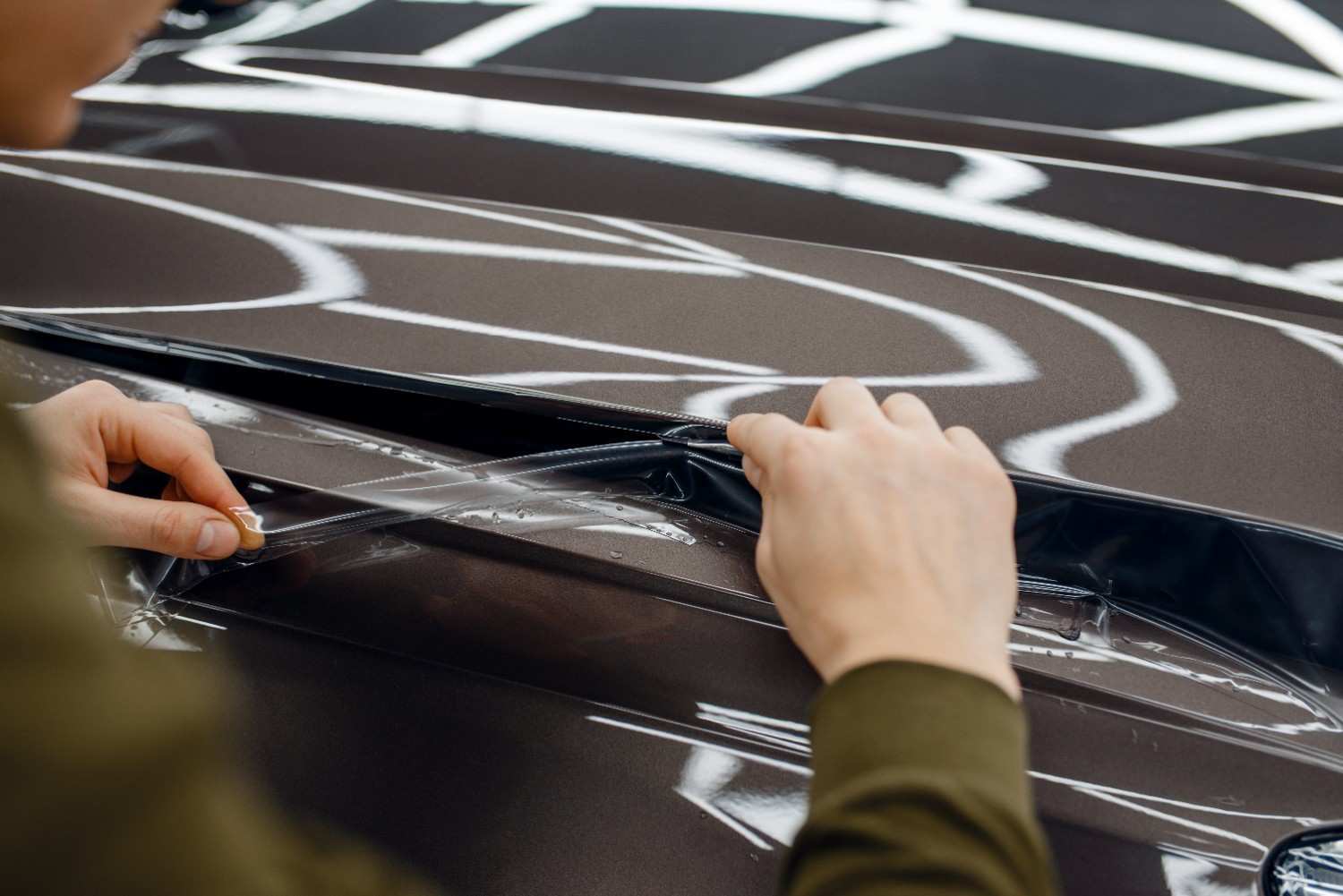Car wrapping is a creative way to reshape the appearance of your vehicle and also get your message out. It can be used for both designing and versatile marketing practices. Most car enthusiasts use wrapping for different color and design combinations.
Vehicle wrapping is adding a thin layer of vinyl to a car’s exterior that allows for unique customization and acts as a protection layer to the original paint. This blog delves into the benefits of wrapping, how it works, and some challenges.

How Car Wrapping Works and Gives Your Car a New Look
You can upgrade the body of a car with quality vinyl material that sticks closely to the car body to create a smooth, paint-like finish. Custom auto wrap is a great solution to costly traditional paint jobs and protects cars from scratches and accidental damage.
How It Works: Vinyl Wrapping Process
-
Before applying a new wrap, clean the outer body completely to remove debris and oil and ensure any dust elements don’t affect the adhesive properties of the vinyl.
-
Carefully stretch and apply a vinyl wrap to the car’s surface.
-
Professional car modifiers use heat guns and squeegees to shape the wrap precisely over curves, edges, and other details.
-
Remove additional vinyl and cover the edges for a clean and smooth finish.
-
The auto-wrapping vinyl comes in a wide range of finishes, including gloss, satin, metallic, matte, and textured designs for a completely restored look.
Benefits of Car Wrapping: Protection and Customization
Car wrapping provides many benefits that make it a desired choice for car lovers. Among the benefits of wrapping, the primary goal is to protect it from scratches, UV, and accidental damage. Car wraps in the UK are becoming more popular for its favorable climate and other external factors.
Vinyl wraps protect the original paint of your car against scratches and minor abrasions that you cannot avoid otherwise. Quality vehicle wrapping is very useful for maintaining the resale value and appearance of your car. There are boundless design alternatives with vehicle wrapping whether you want a glossy color, a unique pattern, or a personalized design for branding, modern car wraps provide high-quality and cost-effective solutions.
Auto wrap costs less and typically takes less time than a completed paint job. It also allows for easy modifications, such as removing or changing the wrap to renew the appearance of your vehicle. Vinyl wraps require less maintenance and a moderate wash to keep your car looking new.
Car Wrapping vs Painting: Which is Right For You?
Choosing between car wrapping and painting becomes a difficult move as you have to evaluate several factors. Cost is a primary factor so it is essential to evaluate what is cheaper wrapping or painting a car. vehicle wrapping is cheaper than a paint job which makes it a cost-effective choice for those looking to improve their car’s appeal. Durability is another consideration that makes it a suitable choice among car lovers.
Paint jobs relatively last longer but cost more; whereas, well-maintained wraps can also last for years. Wraps provide a wide range of customization in terms of design, color, and texture. Such creativity is difficult to achieve with car paints. Last but not least, wrapping has the advantage of being flexible compared to paints which allows for quick removal and design changes.
Common Wrapping Issues and How to Fix Them
When a car is wrapped, it may pose several challenges that you need to fix while dealing with wraps.
-
Peeling is a major wrapping issue that happens over time or due to faulty installation and exposure to harsh weather. Always look for a competent installation and avoid high-pressure washes to enhance the longevity of your car wraps.
-
Another major challenge is color fading after prolonged UV exposure. It may be difficult to fix but you can take proactive measures like park in shaded areas and apply UV-protective coatings.
-
Improper wrap installation can create trapped air bubbles. To remove air bubbles during installation, use a heat gun and a squeegee.
-
The wrap requires proper care after installation. You should gently clean or wash your car and avoid the use of abrasive instruments to overcome issues associated with car wrapping. Additionally, you should do some research to understand what is the best car wrap brand for quality results.
What to Expect in Terms of a Cost of Wrap
There is no fixed price for car wrapping and actual cost can be determined by various factors like the size of your car, material, and design complexity. However, simple and single-color vinyl wraps start between £1000 and £1,500 for a sedan-sized car. On the other hand, premium wraps have high-quality material and custom auto wrap designs that take your wrap cost to £2,500 and £4,000 or even higher.
If you’re comparing the average cost of car wraps with paint, wrapping is often less expensive than a complete paint job.

Conclusion: To Wrap or Not To Wrap
Vehicle wrapping is a unique solution for anyone who wants to preserve their vehicle, express their personality, or promote their brand or business. Its cost-effectiveness, versatility, and customization options make it a popular alternative to traditional car paints. Whether you plan to install a full wrap, a partial wrap, or cover the damaged areas of your car paint with unique wraps, auto-wrapping vinyl offers a wide range of wrapping solutions to meet your needs and preferences.
Get Expert Help With Your Car Wrapping Project
If you’re ready to customize your car with a unique auto wrap, Techwrap is the right place for the best results. Our professionals can walk you through the entire process, from choosing the ideal design to keen attention to detail during wrap installation. Contact us today to learn more about our vehicle wrapping solutions and how our customized wraps can bring your creativity to reality.
